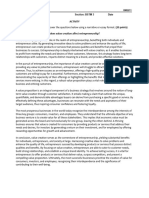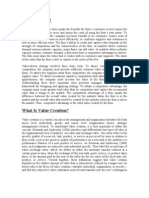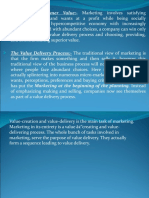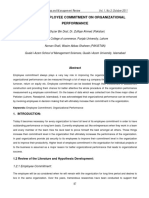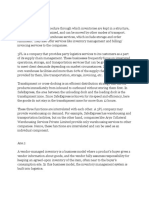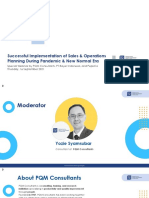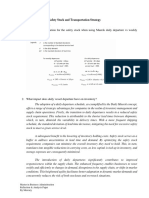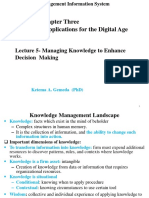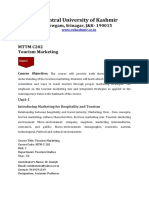What is value creation in business
Value creation identifies the intersection between the overlapping interests of customers,
stakeholders, and the organization itself. A successful business model leverages all of these
values within company initiatives.
Value creation is offering products that meet and exceed customers’ expectations. When a
company inspires customer loyalty, profits increase. When stakeholders receive high returns on
their investments, they’re willing to contribute more capital. This capital sustains the company’s
future initiatives, such as increased employee benefits and training. When employees are valued,
productivity and product innovation increase.
Do you notice a trend? By focusing on value creation, the initial investment reinvests itself and is
amplified.
Why is value creation important?
Investing in value creation sparks a cycle of sustained advantages for all aspects of your
business. In other words, the value creation trade-offs keep your business profitable so you can
continue doing what you’re doing – and do it even better. These are the key areas influenced by
value creation:
1. Sustainable business success
Targeted value creation ensures long-term value for this quarter and for years to come. Without a
clear vision of the company’s objectives, initiatives are unfocused. When resources aren’t
sustainably allocated, cash flow halts, the bottom line decreases, and future endeavors are at a
disadvantage.
2. Customer satisfaction
The customer relationship doesn’t end at the buying decision. In fact, it begins with the creation
of value. Sustained customer satisfaction results in continued business with supportive
consumers. These long-term customers inspire new purchases through word-of-mouth product
recommendations to their friends and family.
3. Competitive advantage
When value creation informs your company’s initiatives, it keeps your offerings top-of-mind and
your name at the top of the food chain. The shutdown of many businesses during the COVID-19
pandemic proves that having a competitive advantage does more than increase profits – it can
keep your company alive during times of strained financial returns.
4. Stakeholder engagement
�Within a company’s practices, value creation can take the form of transparent communication
regarding goals, performance, and assets with stakeholders. This clarity sustains the balance
between internal initiatives and stakeholder engagement. The decision-making process
strengthens when these perspectives align.
5. Financial performance
Understanding the values and needs of customers, stakeholders, and the organization results in
the most competitive pricing that both appeals to customers and optimizes profits. When the
creation of value takes center stage in the decision-making process, financial returns are fully
realized because of the precision of company initiatives.
6. Innovation and adaptability
Change is the only constant, and customer needs are no exception. Without refocusing efforts
and innovating your offerings, your customers will find another company that can meet their
evolving expectations. Innovating your products and services retains old customers and attracts
new ones.














